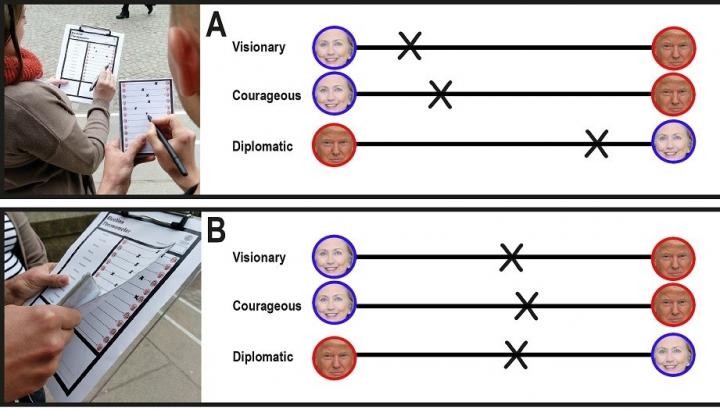They showed questionnaire responses where respondents were actually more moderate than their real responses, and then people justified their moderation.
Posing as political researchers, a research team from McGill and Lund Universities approached 136 voters at the first Donald Trump and Hilary Clinton presidential debate, on Long Island, and asked them to compare Trump and Clinton on various leadership traits (such as courage, vision, and analytic skills) by putting an X on a sliding scale.
But rather than discuss their real findings they used sleight of hand to substitute one completed survey sheet for another, so that most of the survey answers appeared moderate, closer to the midpoint between Trump and Clinton.
After they presented these more moderate responses to the participants as being their own answers, 94 percent of the respondents not only accepted the manipulated responses as being their own answers, they readily justified the moderate views. For example, one participant who initially heavily favored the Republican nominee, Donald Trump said, "I guess I fall somewhere in the middle -- I'd like to think I'm a little moderate. I think at this point it's important to be open-minded", even though they had reported more polarized views moments earlier.

The researchers then replicated this study online with nearly 500 participants and found no difference in the results between Clinton and Trump supporters. The majority of the participants were again susceptible to the manipulation and rationalized their ostensibly moderate responses. Afterwards, to ensure that it did not affect the participants' attitudes in the longer term, the researchers debriefed them and explained the manipulation.





Comments